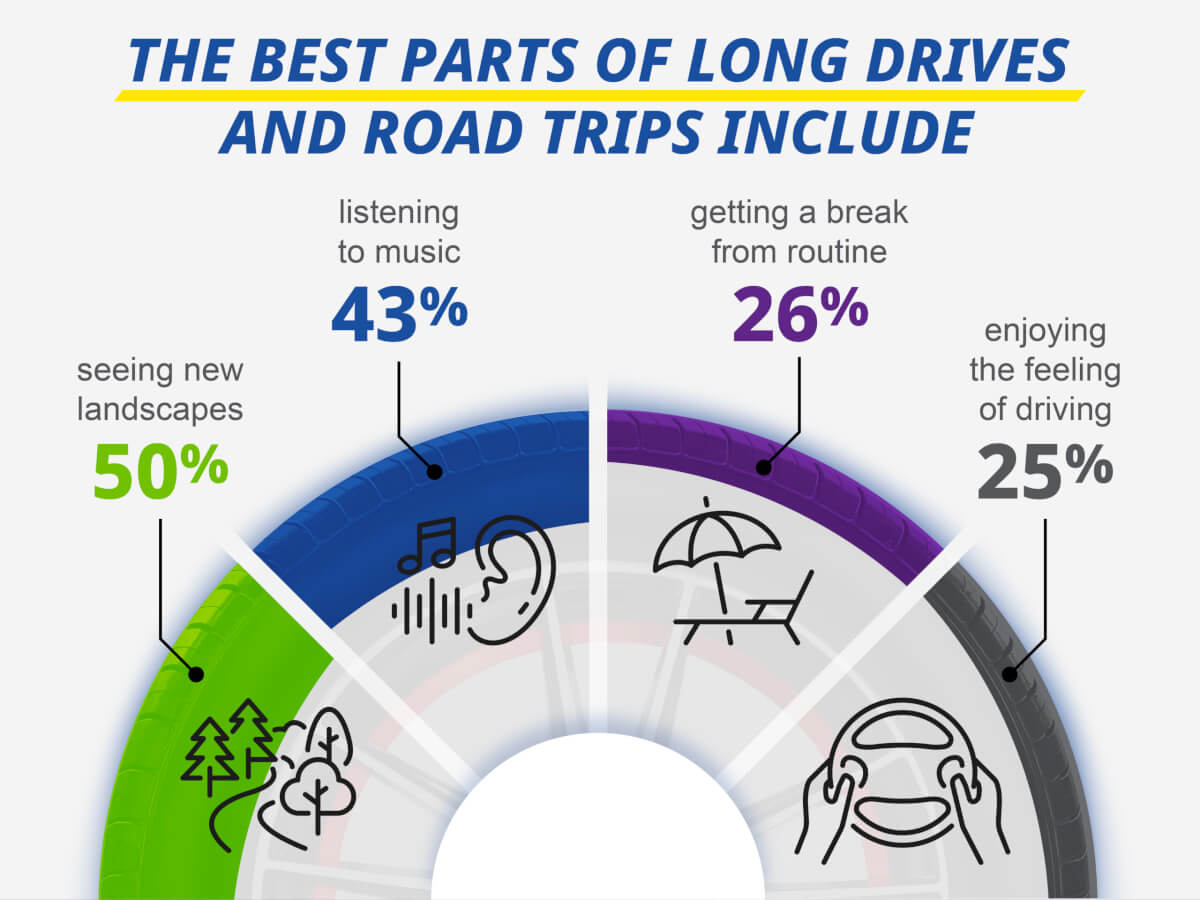NEW YORK — If you enjoy spending time on the open road, you’re far from alone. A recent poll of 2,000 American drivers reveals that a whopping 73% prefer cars as their go-to mode of transportation for vacation getaways. So, what is it about road trips that make them so irresistible?
According to the survey, commissioned by Michelin for Distracted Driving Awareness Month in April and conducted by OnePoll, the most enjoyable part of road trips are seeing new landscapes (50%). Beyond the scenery, the best road trip aspects include listening to music (43%), getting a break from routine (26%), and enjoying the feeling of driving (25%).
With all that in mind, it’s understandable why only 22% of respondents opt to fly rather than drive when going on a trip.
Among those who have ever gone on a road trip, 43% consider themselves experienced, while 21% boldly label themselves as expert-level road trippers. On average, these seasoned travelers have embarked on an impressive 16 road trips in their lifetime. When it comes to driving responsibilities, 45% prefer to take the wheel, 22% prefer to let someone else drive, and 28% enjoy splitting the role.

Safety is a top priority for road trippers, with their biggest concerns being having a safe and reliable car (35%), traffic (32%), staying alert and awake (28%), and being aware of dangerous drivers (27%). To stay alert on long drives, respondents rely on listening to music, audiobooks, and podcasts (57%), talking to someone else in the car (57%), and drinking coffee or energy drinks (52%). Additionally, 68% have a check-in schedule to let friends or family know they’re safe, with 22% checking in halfway through the drive and 20% sending a check-in text or call every two hours.
Of course, road trips aren’t without their annoyances. For those who have taken a road trip or long drive in the last five years, losing cell service (36%), needing to make frequent bathroom stops (35%), and passengers asking, “Are we there yet?” (27%) rank as their biggest pet peeves. Even more concerning, 37% of road trippers have experienced what they’d call a road trip nightmare, ranging from flat tires and broken-down cars to accidents and treacherous weather conditions.
To ensure a smooth and enjoyable journey, 93% of long-distance drivers agree that knowing their car is safe and reliable allows them to be fully present and make more memories on the trip. In fact, 79% of road trippers prefer to have their car inspected before hitting the road, either by themselves or by a professional. A staggering 95% will check their tires for nails, tread depth, and tire pressure, while 94% say it’s a high priority to have a reliable car when embarking on a road trip.

As Russell Shepherd, technical communications director of Michelin North America, puts it, “Sometimes, a little preparation can go a long way, especially with road trips. The best trips and vacations include a safety plan. As all drivers and road trippers know, you need to account for unexpected bumps in the road. If you know you have a reliable car and you can safely get to where you’re going, you’ll be better able to enjoy the ride, without worrying about little mishaps.”
So, as you gear up for your next road trip adventure, remember to prioritize safety and prepare your vehicle for the journey ahead. With a little planning and a reliable set of wheels, you’ll be ready to create unforgettable memories on the open road.
Survey methodology:
This random double-opt-in survey of 2,000 American drivers was commissioned by Michelin between Feb. 9 and Feb. 20, 2024. It was conducted by market research company OnePoll, whose team members are members of the Market Research Society and have corporate membership to the American Association for Public Opinion Research (AAPOR) and the European Society for Opinion and Marketing Research (ESOMAR).
